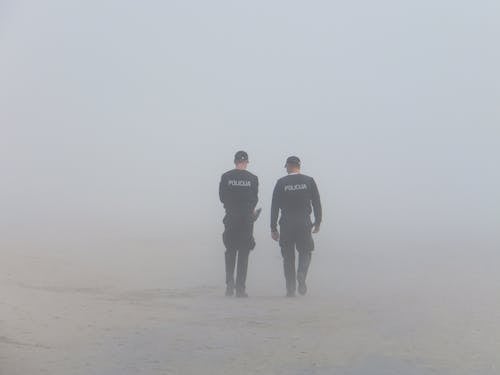Freedom of Mobility: Traveling with a van provides unparalleled freedom to roam. Unlike rigid travel itineraries dictated by flights or train schedules, van life allows you to chart your course spontaneously. Whether you stumble upon a hidden gem or decide to extend your stay in a picturesque location, the freedom to explore at your own pace is liberating.

Comfort and Convenience: Vans offer a mobile sanctuary, complete with essential amenities for comfortable living. From a cozy bed to a compact kitchenette and ample storage space, van dwellers enjoy the convenience of having their home on wheels. This eliminates the hassle of packing and unpacking at each destination and reduces reliance on expensive hotels or restaurants.
Cost-Effective: While the initial investment in purchasing or converting a van can be substantial, the long-term cost savings of van life are significant. With minimal accommodation expenses and the ability to prepare your meals, van travel is inherently more budget-friendly than traditional forms of travel. This makes it an appealing option for long-term adventurers looking to stretch their funds.
Connection with Nature: One of the most rewarding aspects of traveling with a van is the opportunity to immerse oneself in nature fully. Waking up to stunning vistas, camping under the stars, and embarking on outdoor adventures are integral parts of the van life experience. Whether it’s hiking in national parks, swimming in secluded lakes, or simply basking in the tranquility of the wilderness, van travel fosters a deep connection with the natural world.

Community and Camaraderie: Van life is not just a mode of travel; it’s a lifestyle embraced by a vibrant community of like-minded individuals. Engaging with fellow van dwellers through social media groups, meetups, and shared experiences fosters a sense of camaraderie and support. Whether exchanging travel tips, lending a helping hand, or simply sharing stories around a campfire, the van life community offers a sense of belonging and companionship on the road.
Cons:
Limited Space: Despite ingenious design solutions, living space in a van is inherently constrained. The compact quarters can feel claustrophobic, especially during inclement weather or extended periods of confinement. Limited storage space may also pose challenges for organizing belongings and equipment, requiring creative solutions to maximize available space.
Maintenance Requirements: Vans, particularly older models, demand regular maintenance to ensure their reliability on the road. Mechanical issues such as engine malfunctions or breakdowns can disrupt travel plans and incur unexpected repair costs. Staying on top of maintenance tasks and addressing issues promptly is essential for a smooth travel experience.

Parking and Accessibility: Finding suitable parking spots for overnight stays, especially in urban areas, can be a logistical challenge. Restrictions on overnight parking and limited accessibility to certain attractions may constrain travel options and necessitate careful planning. Moreover, navigating narrow roads or rough terrain may require advanced driving skills and suitable vehicle modifications.
Weather Dependency: Van travel is inherently susceptible to weather conditions, which can significantly impact comfort and safety on the road. Extreme temperatures, storms, and inclement weather may necessitate adjustments to travel plans, such as seeking shelter or altering routes. Adequate insulation, ventilation, and weatherproofing are essential to mitigate the effects of adverse weather conditions.
Safety Concerns: While van life offers a sense of freedom and adventure, safety concerns can arise, particularly when traveling solo or in unfamiliar areas. Securing valuables, safeguarding against theft or vandalism, and ensuring personal safety are paramount considerations for van dwellers. Vigilance, situational awareness, and proactive safety measures are essential for a secure and enjoyable travel experience.
Alternative Travel Options:
Pros:
Diverse Experiences: Alternative travel options offer a diverse range of experiences tailored to individual preferences and interests. Whether it’s backpacking through remote wilderness areas, cycling along scenic routes, or embarking on epic train journeys, there’s something for every type of traveler. Each mode of travel presents unique opportunities for exploration, discovery, and adventure.

Minimal Environmental Impact: Many alternative travel modes are inherently more sustainable and eco-friendly than conventional vehicles. Choosing modes of transportation such as biking, walking, or using public transit reduces carbon emissions and minimizes environmental impact. Embracing sustainable travel practices aligns with responsible tourism principles and contributes to the preservation of natural resources and ecosystems.
Immersive Cultural Interaction: Traveling without the confines of a vehicle encourages meaningful engagement with local communities and cultures. Backpackers, cyclists, and public transit users have the opportunity to interact with locals, learn about their customs and traditions, and immerse themselves in authentic cultural experiences. Whether it’s sampling street food in bustling markets, attending cultural festivals, or participating in community activities, alternative travelers gain insights into the rich tapestry of global cultures.
Physical Health Benefits: Active travel options such as hiking, cycling, and walking offer numerous health benefits for travelers. By incorporating physical activity into their journeys, travelers improve cardiovascular fitness, strengthen muscles, and enhance overall well-being. Exploring destinations on foot or by bike allows travelers to connect with their surroundings at a leisurely pace, fostering a deeper appreciation for the natural and cultural landscapes they encounter.

Cost-Effectiveness: Alternative travel options can be more cost-effective than traditional forms of travel, particularly for budget-conscious adventurers. Backpacking, hitchhiking, and using public transportation significantly reduce transportation and accommodation expenses, making travel more accessible to a wider range of travelers. By prioritizing value-for-money experiences and embracing frugal travel practices, alternative travelers can stretch their budgets and prolong their adventures.
Cons:
Limited Comfort: Alternative travel options often entail sacrificing comfort and convenience in favor of adventure and exploration. Backpackers may endure long hours of walking with heavy packs, sleep in dormitory-style accommodations, or forego certain creature comforts. While some travelers embrace the simplicity and spontaneity of alternative travel, others may find it challenging to adapt to the lack of amenities and comforts associated with traditional forms of travel.
Logistical Challenges: Planning and coordinating alternative travel can be more complex and time-consuming than traveling with a van. Backpackers, cyclists, and public transit users must navigate unfamiliar routes, research transportation options, and contend with logistical constraints such as limited schedules or availability. Adequate preparation and flexibility are essential to overcome logistical challenges and ensure a smooth travel experience.

Dependency on External Factors: Alternative travel modes are subject to external factors such as weather conditions, transportation strikes, or route closures. Unforeseen delays or disruptions may derail travel plans, necessitating last-minute adjustments or alternative arrangements. Travelers must remain adaptable and resourceful in the face of unexpected challenges, maintaining a positive attitude and open-minded approach to overcome obstacles.
Security Concerns: Traveling without the security of a vehicle may raise safety concerns, particularly in unfamiliar or high-risk areas. Backpackers, cyclists, and public transit users must take precautions to safeguard themselves and their belongings against theft, scams, or other security threats. Maintaining situational awareness, securing valuables, and avoiding risky situations are essential strategies for staying safe while traveling via alternative means.
Limited Accessibility: Some destinations may be less accessible or convenient to reach via alternative travel modes. Remote or rural areas with limited transportation infrastructure may pose challenges for travelers relying on public transit or active modes of transport. Additionally

Leave a Reply